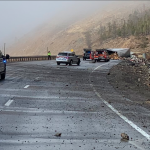Colorado Mountain College is asking voters to restore its taxing authority. Here’s why some call it a tax increase.
Colorado Mountain College says ballot question 7C would fund trades training, housing; critics call it a tax hike

Colorado Mountain College/Courtesy photo
Colorado Mountain College wants the approval of voters to restore its mill levy above the state cap for revenue growth — a permission once enjoyed by the college before the cap took effect in 2024. While the increased revenue would go toward investment in local trades and housing solutions, some argue the improvements shouldn’t be funded by homeowners’ property taxes.
Colorado Mountain College is a public college with 11 campuses across the central mountain region, focused on providing skilled trades training in key industries like nursing, emergency services, construction and automotive.
The college’s board of trustees unanimously approved the November ballot measure 7C back in August. Measure 7C will appear on all ballots within the eight central Colorado counties covered by the college’s taxing district, which include Eagle, Garfield, Grand, Pitkin, Routt, Summit, Jackson and Lake counties.
Colorado Mountain College maintains that the measure is not a new tax, but rather the restoration of “funding flexibility” approved by voters in 2018.
The measure approved by voters in 2018 was Ballot Question 7D, passed by 71% of voters. The measure removed the effects of the Gallagher Amendment, which would have cut revenues from the college, by permitting its board to adjust property tax rates during lean budget years.
When Colorado legislators passed House Bill 1001 in 2024, revenue growth for local governments was capped at 5.25% per year. Chris Romer, president of the board of trustees, said the state law blocks Colorado Mountain College from adjusting its mill levy without seeking approval from voters, which would slow several projects.
Romer said the approval of 7C is critical for the college to expand training for nurses, first responders, in-demand skilled trades and develop housing strategies to retain talent in mountain communities. Unlike the measure passed in 2018, 7C has a 10-year sunset, after which voters would need to vote on whether to extend it.
An extension of the community’s trust
Matt Gianneschi, president of Colorado Mountain College, said waiving the state-imposed cap might not have been necessary if the college hadn’t temporarily lowered its mill levy to provide relief to taxpayers in 2024.
“We wanted to provide tax relief to our local property owners, both businesses and residences, and it just so happened that when we did that, it was the same year that the legislature used as their new baseline,” Gianneschi said.
- Ballot issue 7C reads as follows: Without imposing any new tax and without exceeding the limit approved by voters in 2018, shall Colorado Mountain College waive the 5.25% property tax limit for a period of ten years for investment in:
- Expanding skilled trades, including automotive, welding, and construction;
- Training nurses, firefighters and first responders;
- Housing solutions to retain local talent;
and shall the proceeds of such taxes and investment income thereon be collected and spent by the district as a voter approved revenue change under Article X, Section 20 of the Colorado Constitution or any other law?
The Colorado Taxpayer’s Bill of Rights doesn’t allow special tax districts to reduce their mill levy without going back to the voters for permission to restore it to the approved mill levy. Because of the rapid escalation of property values during the pandemic, however, the Colorado legislature allowed special districts and local governments to rebate their mill levy, which Colorado Mountain College used to return roughly $47 million in relief to taxpayers over the past two years in response to rising property valuations and a balanced college budget.
When the Colorado legislature held its special session in 2024, lawmakers decided to cap the growth of all tax districts at 5.25%, locking in every district at their growth from the year prior. This meant Colorado Mountain College was limited to 5.25% growth off of its rebated number rather than its previously approved mill levy.
“Knowing that we had the flexibility when projects came up in the future to adjust the mill levy on an annual basis, we (the board) were trying to do the right thing and be responsible stewards of the taxpayer dollars,” Romer said. “We lowered the mill levy to operate within a balanced budget and not just squirrel away money into reserves because we felt like it was the right thing to do.”
“It’s not a question of exceeding a certain value, per se. It’s about local control,” Gianneschi said. “What the legislature did last year was impose a statewide mandate on our revenues without consideration of what our actual revenue history has been.”
Before the legislature decided to implement the 5.25% cap, Gianneschi said the college had already mapped out major multi-year investments — one of the largest being expanding skilled trades programming for students currently on waiting lists.
Colorado Mountain College is governed by a locally elected board of trustees with nine representatives from seven geographic districts serving, who “at the end of the day are responsible to the voters the individual communities that we represent,” said Romer, who is the CEO and president of the Vail Valley Partnership.
The ballot requires that the college produce and publish independently audited financial reports every year to ensure transparency and accountability for how funds are managed.
Roughly 70% of the college’s funding comes from property taxes, followed by tuition (12-15%) and state funding (13%), with some fluctuation, according to Gianneschi.
In 2024, Colorado Mountain College reported receiving roughly $66 million from property taxes and almost $13 million from tuition and fees. Its highest expenses were instruction (roughly $31 million), institutional support ($24 million), student aid ($12 million), auxiliary enterprises ($12 million) and student services ($10 million).
“(Property tax funding) is part of why Colorado Mountain College is able to have such affordable tuition and have such a robust concurrent enrollment program with the high schools,” Romer said. “We’re able to have lower tuition because of the property tax base to provide that foundation of funding.”
Gianneschi said the most prominent support for the ballot measure has come from the business community. So far, the college has confirmed endorsements from the Glenwood Springs Chamber Resort Association, the Colorado River Valley Chamber of Commerce and the Vail Valley Partnership.
Over 90% of all Colorado Mountain College graduates are registered as local in their tuition classification, meaning they have a permanent home address in their tax districts. In addition, roughly 40% of enrollments are local high school students taking college courses, which saves families money while helping students earn degrees and certificates.
“I think the business community has a very special interest in the college in that we provide not only the workforce for their local and rural employers, but what I hear often from the business community is that the college allows a quality of life that is unique among rural communities,” Gianneschi said.
An invitation for higher taxes?
There is currently no registered opposition to ballot measure 7C, and no comments in opposition were submitted before the deadline for the TABOR notice to taxpayers. However, some fiscal-policy commentators have made critical comments about the measure online.
Joshua Sharf, a senior fellow in fiscal policy at Denver-based “free-market” think tank Independence Institute, argues Colorado Mountain College shouldn’t be the exception for restrictions on other local governments and special tax districts.
“For (CMC) to say this is not a tax increase, it’s dissembling at best,” Sharf said. “It’s clearly a tax increase, because if it weren’t a tax increase, they wouldn’t have to go to the voters for it.”
Sharf pointed to other districts like the Regional Transportation District in Denver and Pitkin County government as examples of organizations that would be able to increase their community offerings with more funding — the question is whether it’s fair to draw that increased funding from taxpayers, and which organization deserves it more than the others.
“The Pitkin County government, in theory, is there for the benefit of the Pitkin County residents, but that doesn’t mean that they’re entitled to not examine how their money is being spent or to not set priorities,” he said.
Sharf added, “The 5.25% limit was imposed for a reason. That was imposed so that local governments and special taxing districts — in this case, Colorado Mountain College — would have to live within their means and allow the taxpayers who support them some breathing room to pay their own bills and take care of themselves.”
Sharf also pointed to the college’s $55 million in certificates of participation, which already allow institutions to issue debt without asking the public. The certificates are a financing tool that lets government entities fund capital projects through lease-purchase agreements without seeking voter approval, since the agreements do not legally count as long-term debt under Colorado’s Taxpayer’s Bill of Rights.
The college has two long-term debts, both of which are certificates of participation, according to 2024 audited financial statements. The first series was issued in 2017 to refund previous certificates, fund improvements on the Spring Valley campus and purchase housing units in Breckenridge. It has a remaining balance of $23,140,000 as of June 2024 and is scheduled to be paid off by 2047.
The second series was issued in 2021 to fund apartment-style housing for students on four campuses and has a remaining balance of $31,880,000 as of 2024, to be paid off by 2051.
Ultimately, Sharf said 7C would impact normal homeowners already being hit with the repeal of the Gallagher Amendment and accompanying property tax increases.
“They’re raising these on rising property valuations, which means that people who are already under the new property tax reform are already paying more property tax, and are being asked to pay even more property tax,” he said. “People tend to think of voters in Aspen, voters in Eagle as being well off and able to afford all of this, and that’s not necessarily true.”
Election Day is Tuesday, Nov. 4. The deadline to register to vote in Colorado is 7 p.m. on Election Day.

Support Local Journalism

Support Local Journalism
As a Summit Daily News reader, you make our work possible.
Summit Daily is embarking on a multiyear project to digitize its archives going back to 1989 and make them available to the public in partnership with the Colorado Historic Newspapers Collection. The full project is expected to cost about $165,000. All donations made in 2023 will go directly toward this project.
Every contribution, no matter the size, will make a difference.










